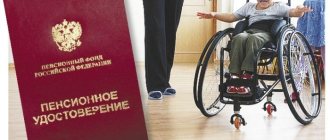The memory of the Great Patriotic War is especially preserved and revered in the territory of most modern states that were once part of the USSR. This is not surprising, since it affected almost every nation and every family.
Veterans who directly took part in hostilities are given special treatment in society. It is also reflected in official government policy. In accordance with the law, the current, but very few, WWII veterans have many benefits, as well as members of their families.
In addition, the law gives a separate social status to some other categories of persons whose lives were, in one way or another, affected by the war. In this case we are talking about residents of besieged Leningrad, as well as home front workers. Although they did not directly take part in hostilities, they experienced many hardships and through their labor exploits made a significant contribution to the Victory.
In 2014, it became known about a legislative initiative, according to which a new group of beneficiaries was identified - “children of war” . However, many citizens do not have a clear idea of what is meant by this concept and who exactly can be the recipient of benefits and allowances on this basis.
Who belongs to the category of children of war?
Today, it is simply impossible to give an exact formulation of who exactly has the status of “children of war.” This is due to the fact that the legislative initiative put forward in 2014 has not yet passed beyond the draft stage. In other words, the current federal legislation does not define this issue, and the status of “children of war” is not widespread.
At the same time, the bill has not been rejected, but is under consideration, which allows its provisions to be used as a theoretical basis for a more detailed consideration of this issue.
Thus, according to the document, all citizens born on the territory of the USSR from 1928 to 1945 should be classified as “children of war”.
Legislators determined that the last date of birth for this category of beneficiaries was September 3, 1945. It was then that representatives of the Japanese Empire signed the act of surrender, which ended the Second World War.
Reference! It should be noted that in order to recognize a citizen as a beneficiary of this category, only the basis of birth on the territory of the USSR in a certain period is considered. It does not matter in which part of it. In other words, those born and living both in the occupied territories and in the deep rear have the right to apply for status.
The reason for separating this group of people into a separate category of beneficiaries, the deputies who proposed this initiative, consider the fact that people whose childhood occurred during the war years experienced hunger and deprivation for quite a long time, and therefore deserve special attention from society and the state.
Can other preferential categories be offered instead of a child of war?
Since support for war children is not provided in all regions, districts that do not have such status offer applicants to apply for alternative options.
By obtaining such titles, citizens can receive appropriate government support, preferential benefits and payments.
Regional authorities of those regions that do not take into account the official status of children of war propose to issue the following preferential categories:
- Veteran of the Great Patriotic War;
- Home front worker is a fairly common title. However, to obtain it, you will need documentary evidence that the citizen worked in the rear during the time period from July 22, 1941 to May 1945. A prerequisite is that the official work experience must be at least six months. If a person has medals for work, they are entitled to receive a title without documentary evidence;
- A member of a family who lost a disabled person during the Second World War. To obtain, you will need a certificate of death of a relative who was disabled and participated in the Second World War;
- Citizens who have and are entitled to the medal “For the Defense of Leningrad” or other honorary awards.
Federal Law No. 5 “On Veterans”.
Please check the process of obtaining the above titles and the required documentation directly with the authorized bodies.
Below is an example of the process on how to obtain one of the preferential statuses:
Citizen Ivanov I.I. Born in 1930, who lives in the Tver region, claims to receive the status of “Children of War”.
The citizen visited the local social security community and applied for the above-mentioned status.
The application was considered by the authorized body, and the civil service offered the citizen to receive the status of “Home Front Worker”, since Ivanov I.I. had nine months of work experience in the rear in 1942.
This status will provide the pensioner with social support, a pension supplement and other preferential privileges, which gives precedence over the “Children of War” status.
Ivanov I.I. collected the necessary documentation, filled out an application and received the well-deserved title of “Home Front Worker.”
Legislative regulation
At the federal level, today there is no regulatory basis for payments to persons born from 1928 to 1945 and not included in any preferential category.
However, in 2014, a number of deputies of the lower house of the Federal Assembly put forward a legislative initiative, which took shape in draft federal law No. 493165-6 “On Children of War.” It establishes this status, and also regulates the procedure for its assignment and determines the list of social protection measures.
According to statistics, if the relevant law is adopted, more than 17 million citizens will receive the status of “children of war.”
This bill was not adopted by the State Duma, nor was it rejected. Experts believe that the uncertainty regarding the future of this legislative initiative is caused by the fact that its implementation would require quite significant budget expenditures, which was practically impossible to implement in the conditions of the crisis that occurred during the same period.
In the current conditions associated with the stabilization of the economic situation and sufficient filling of the budget, this bill has prospects. Thus, experts estimate that it will be given the status of a federal law as early as 2021.
An important role in this is played by the fact that in a number of Russian regions similar programs are already in place to support citizens whose childhood occurred during the war period . Thus, the status of “children of war” is legally enshrined in regional regulations. At the same time, the volume of benefits provided to senior citizens varies depending on the specific subject of the federation.
What benefits exist for children of war?
In accordance with the provisions of the bill, it is established that “children of war” will have the right to the following social support measures:
- Cash payment. The monthly payment amount should be 1 thousand rubles. At the same time, the possibility of its annual indexation has been established.
- Free pass . Beneficiaries in the category discussed in the article will be able to use all types of municipal and suburban transport without paying.
- Annual medical examination . Since citizens classified as “children of war” are elderly, issues related to maintaining health and preventing diseases are important to them. For this reason, medical examinations for these beneficiaries should be annual.
- Installing a phone out of turn. Despite the development of cellular communications, many older citizens prefer to use landline home phones. This is especially true for residents of small towns and villages, where the quality of mobile communications can be quite low.
- Extraordinary admission to social services. According to the provisions of the bill, “children of war” have priority when determining the order of priority for receiving social services.
What benefits are entitled to children of war and how to get them?
Children of war are considered to be people who survived the difficult times of the Great Patriotic War.
This category includes citizens who did not take a direct part in the hostilities, however, they experienced all the hardships of this brutal event.
The state honors the memory of the heroes of the Second World War, so it takes care of them, trying to make their lives easier and better. Children of war in our country have received the right to benefits, payments and powers fixed by law.
Who is included in the concept of “children of war”
This status includes citizens of the Russian Federation born in the Soviet Union between mid-1923 and 1945 inclusive. Even though they did not take part in the war, current retirees are still considered victims of this event.
We must understand that these people were deprived of their childhood, and irreparable damage was caused to their health and psyche. They experienced hunger and a lack of basic household items and essentials.
Children of the war did not receive a decent education, they did not have toys and normal conditions for personality development, they had to go to work early and become independent.
Many of the children became orphans in childhood and from that time on were left to their own devices.
Benefits for children of war
Now the children of war are in their seventies and eighties. The state is supposed to take care of them and provide them with a happy old age in prosperity.
But, unfortunately, at the moment these citizens are not provided with any types of benefits at the federal level.
Advice!
All payments and programs are provided to this group of pensioners exclusively at the regional level, despite the fact that every year there are fewer and fewer people who experienced a difficult childhood.
But in 2021, a bill is being considered to include benefits for war children in the list of social benefits at the federal level. A sample for drawing up a future law is information on regional payments to citizens who suffered during the German occupation of certain regions of the Soviet Union.
Places where benefits are provided
Currently, children of war in Russia can receive benefits in twenty regions. These territorial units will be listed below.
Regions:
- Adygea;
- Altai region;
- Amur region;
- Belgorod region;
- Buryatia;
- Vologda Region;
- Altai Republic;
- Irkutsk region;
- Krasnoyarsk region;
- Leningrad region;
- Mordovia;
- Nenets Autonomous Okrug;
- Novosibirsk region;
- Omsk region;
- Orenburg region;
- Pskov region;
- Samara Region;
- Udmurtia;
- Ulyanovsk region;
- Yamalo-Nenets Autonomous Okrug.
Also, special conditions for older people whose childhood passed during wartime are provided in the list of districts of the Russian Federation.
List of such entities:
- Belgorod region;
- Volgograd region;
- Samara Region;
- Yaroslavl region;
- Tula region;
- Khanty-Mansiysk Autonomous Okrug;
- Yamalo-Nenets Autonomous Okrug.
What benefits can pensioners receive in certain districts?
Now pensioners living in the subjects of the Russian Federation listed above can apply for benefits for children of the war of 1941-1945.
Regional benefits:
- This group of pensioners has the right to travel at partial cost on public transport.
- This category of elderly people should receive a pension supplement in the form of a cash payment, the amount of which varies between 400-600 rubles.
- Citizens can claim privileges when paying utility bills, including benefits for gas for war children.
- They may require appointment and service at hospitals or clinics without waiting in line.
- Pensioners should receive free medications prescribed by their doctor.
What benefits will children of war receive this year?
At the moment, it is assumed that citizens who grew up during the Second World War will be entitled in 2021 to receive a list of privileges, which will be established at the federal level. To do this, pensioners or their authorized representatives should write an application to special authorities.
Federal privileges:
- Children of war will have the right to receive benefits that are available to the category “home front workers.”
- These individuals will be entitled to benefits for utility bills.
- These citizens will be able to receive free medications with a doctor's prescription.
- They will be able to use municipal transport services free of charge.
- They will be given the right to free and priority social and medical services.
How to get a benefit certificate
Pensioners who survived difficult wartime can receive this certificate for the provision of benefits in the previously mentioned entities.
To do this, pensioners should contact the social care service, where they will need to provide a passport and write an application.
After a few weeks of submitting the application, an elderly person born before the war will be able to receive this certificate.
Additional benefits from the regions
In a small number of regions of the Russian Federation, there are local programs under which “children of war” are entitled to certain benefits.
It should be noted here that the provision of these benefits to beneficiaries is carried out on the initiative of local authorities. Considering that there is significant regional differentiation in income levels and the capabilities of local budgets, it should be noted that the level of support for older citizens belonging to this category is different in each subject of the federation.
In addition to measures similar to those contained in the draft federal law, the regions provide the following compensation to “their” “children of war”:
- preferential drug provision;
- preferential medical care;
- free dental prosthetics;
- providing subsidies for housing and communal services.
As an example, the list of benefits provided to the category of citizens “children of war” in the Ulyanovsk region should be given.
It includes:
- an annual payment of 1 thousand rubles dedicated to Victory Day;
- priority appointment at clinics and other healthcare institutions in the region;
- annual medical examination;
- priority appointment when receiving social services.
Reference! In the Ulyanovsk region, the category of “children of war” includes citizens born between 1932 and 1945. However, from 2021, the authorities decided to increase the number of beneficiaries by including persons born between 1927 and 1932.
Amount of additional payments to pension
For pensioners belonging to the preferential category under consideration, the most significant is the monthly cash payment. In those regions where it is paid monthly, its value has different values depending on the welfare of the subject.
This is clearly reflected in this table:
| Region | Amount (rub.) |
| NAO | 7000 |
| Yamalo-Nenets Autonomous Okrug | 1000 |
| Saint Petersburg | 1000 |
| Volgograd region | 750 |
| Amur region | 720 |
| Belgorod region | 701 |
| Irkutsk region | 650 |
| Leningrad region | 534 |
| Krasnoyarsk region | 420 |
Additional payment to pension for war children in 2018 - Russia, how to apply, where to apply, Moscow
In Russia, which was part of the USSR during the Great Patriotic War, many people suffered from hostilities, and therefore have benefits even in old age, based on a certain status, issued after confirmation by documents.
Children of war who were born during a certain period are also entitled to certain benefits or supplements to their pension.
But at the federal level, such people are practically not protected, but many want to know whether Children of War are entitled to an additional payment to their pension in Russia in 2021.
Initial information
Since there is not a single federal law that would accurately characterize the category of war children and determine the benefits to which they are entitled.
A project on this is being discussed in the Duma, but it has not yet been adopted, which means that the establishment of preferences for people is entirely in the hands of local authorities.
Get free legal advice by asking a question in the form below!
As a rule, children of war in modern Russia are people born during the Second World War and earlier who, at the time of hostilities, did not have the opportunity to fight, but at the same time endured all the hardships and hardships, including hunger and shelling.
Attention!
The Duma has repeatedly tried to introduce bills and approve the status of children of war, but none of the initiatives resulted in the adoption of the law and its introduction.
At the same time, more than 15 regions of the Russian Federation decided to introduce their own preferences for Children of War, while developing a procedure for providing benefits and pension supplements.
Main concepts
In order to understand who can be considered Children of War and what is meant by the provision of benefits, it is necessary to understand certain terms that operate in the sphere, while being found in legal acts of regional significance.
This will help you quickly figure out exactly how a person can receive the support they need and confirm their status:
| Concept | Meaning |
| Children of war | A category of people, which in general terms assumes that a person was born in the period from June 23, 1923 to 1945. Thus, it is assumed that this is a person who did not reach adulthood during the war, and therefore did not participate in hostilities, but suffered all the hardships of wartime |
| Privileges | A measure of state or regional support, which is aimed at reducing the amount of utility bills, tax costs, and can also be provided only to a certain category of persons who have merit to the state or significance for its formation |
| Supplement to pension | An increase in a person's monthly income in the form of additional funds added to pension payments. It is assumed that the additional payment is calculated as a percentage of the pension amount, but can also be clearly established for a certain category of people, but in general it is needed to improve the quality of life of people |
Who is eligible for this status?
Each region has different requirements, and status can only be obtained in the subject of the federation where it is approved and used by the authorities.
In general, we can assume that children of war can be Russians who spent their childhood during the Great Patriotic War, born no earlier than June 23, 1923, in the period up to and including 1945 (those born in 1928 are also eligible).
At the same time, such status can be obtained by those whose birth record has been preserved in the archives or they themselves have a confirming document in their hands, necessarily the original.
Thus, we can say that if a person’s childhood and the period before adulthood took place during the Second World War, then he can receive the status of a child of war without any problems.
Legal basis
| At the federal level | The law on children of war has not yet been adopted, but there is a bill numbered 493165-6 “On children of war” | It contains provisions on who can be recognized as a child of war, what federal benefits they are entitled to and the amount of financial support they are provided with. But while this law is being considered in the State Duma and being adjusted, nothing is known about its adoption. Alternatively, it may well be adopted in 2021, at least that’s what experts say |
| At the regional level | Their own legislative acts are adopted, for example, in the Irkutsk region, legal act number 66-OZ is used “On the status of children of the Great Patriotic War living in the Irkutsk region and measures of social support for citizens who have been assigned the status of children of the Great Patriotic War living in the Irkutsk region” | It talks about which citizens are entitled to this status, the procedure in which such a title is issued and, of course, support measures that are financed from the regional budget |
How to apply for a pension supplement for Children of War
In order to receive benefits and additional payments as a child of war, you need to know how to receive such assistance, which authorities are responsible for processing documentation and applications of applicants for the title, and in what cases there may be a refusal.
In addition, it is also necessary to understand in which regions such a benefit is valid, and what additional payment pensioners can expect. After all, only informational awareness can help in the registration procedure and do it quite quickly.
Receipt procedure
To obtain the status of a child of war, a citizen must first of all contact the necessary government agency that is responsible for processing the relevant documents.
There he can find out what preferences he is entitled to and what documentation confirming his status must be provided.
In addition, they can advise you about the possibility of obtaining another status, for example, one that involves more support than the title of child of war.
After submitting the documents, you should wait about a month, during which the documents will be reviewed and a conclusion will be formed.
The pensioner will be called or sent a letter about the provision of a benefit or refusal of it; it should be noted that the refusal must be motivated.
Where to contact
To obtain the status of a child of war, a person must submit documents and write an application to the local department of social protection, but in some regions, filing is also possible at the local administration, if we are not talking about a regional center, but in small settlements.
Most often, there are no specific specialists who deal with the category of children of war, so the documentation is submitted to one of the specialists, and a special commission reviews the documentation.
Most often, an affirmative answer is given, and the citizen may well enjoy his benefits and receive a certificate, but only if his documents were in order.
Required documents
To obtain the status of a child of war, a person must provide only a few documents, including:
| Passport | Citizen of the Russian Federation |
| Statement | About granting status, written in accordance with the template |
| Birth certificate | Proving birth in a certain period (or a certificate from the archive) |
The application must be addressed to the head of the social security department, and in the header you must also indicate the personal data of the person who expects to receive benefits, his address, passport details, SNILS number and contact information. A sample application for the status of Children of War can be downloaded here.
The application also indicates the request for assignment of status, the basis (law) on which it must be granted, as well as a list of documents attached to the application. It is also necessary to authorize the processing of personal data and sign a statement.
Amount of assistance
Different regions have different material opportunities, depending on wealth and tax levels.
Therefore, the amounts predominantly in all subjects of the federation do not exceed a thousand rubles, but there are also favorably different leaders:
| Region | Additional payment, rubles |
| Nenets Autonomous Okrug | 7000 |
| Yamalo-Nenets Autonomous Okrug | 1000 |
| Vologda | 750 |
| Amurskaya | 720 |
| Belgorodskaya | 702 |
| Leningradskaya | 530 |
| Krasnoyarsk region | 400 |
There are also additional payments for Victory Day, which for the most part do not exceed a thousand rubles, but there are also gifts of 2,000 rubles, again, depending on the wealth of the region.
The situation in Moscow on this issue
Despite the fact that Moscow and the region are a wealthy region, it still does not provide any benefits or additional payments for Children of War.
The fact is that no regional laws have been adopted in relation to them, and pensioners can count on help from the authorities when they belong to another category of military personnel or persons who lived during the Second World War, for example, Labor Veterans or home front workers.
What to watch out for (scams)
Fraud often occurs, and among the applicants for benefits themselves. The fact is that after the destruction of archives due to the Nazi invaders, people were forced to restore documents literally on their word of honor and information from their own mouths, so some people have underestimated or overestimated their dates of birth.
Some people cannot receive benefits for the same reason; this applies to children who, during the Second World War, deliberately raised their age to go to war; unfortunately, the documents state that their age is not suitable for obtaining status.
But if a person’s documents are in order and confirm birth in the required period, then there will be no problems with obtaining the status, if it is provided for in the region.
Important!
The War Child status has not been approved at the federal level, but some regions have approved assistance for this category of people.
As a result, they can receive additional payments to their pension and increase their comfort of life; benefits are also provided, but in order to receive them, they must confirm their age and birth during the war or pre-war.
Subtleties of design
There is no uniform procedure for applying for certain benefits. You should find out about the relevant procedures from the social security authorities at your place of residence.
As a rule, the list of documents for assigning this status is minimal.
The following documents are required from pensioners:
- passport;
- birth certificate;
- pension certificate (if available).
Attention! Regional legislation may contain requirements for the provision of additional documents.
Calculation of benefits if different subsidies are provided
The draft law providing for benefits to “children of war” contains those benefits that citizens belonging to other benefit categories can also count on. In this case, a person cannot receive two preferences at the same time, that is, they are not cumulative. The bill explicitly states that in this case the citizen has the right to choose what type of benefit to take advantage of.
A similar rule exists in most regional regulations that are currently in force.
Despite the fact that the initial draft of the law on “children of war” was first submitted for consideration to deputies of the State Duma back in 2014, this category of beneficiaries has not yet been allocated at the federal level. The corresponding status is assigned only in some regions on the basis of local regulations. The list of benefits for regional benefit recipients varies greatly depending on residence in a particular subject of the federation.
Benefits and payments to war children in 2021 in Russia
Today in the Russian Federation there are about 13 million pensioners who fall under such a category of citizens as “children of war.”
In many regions of our country, certain social support measures are provided for such citizens, including the provision of benefits and monthly payments.
Despite this, most citizens simply do not know about it and use their right to benefits and privileges. In the article we will look at what benefits and payments are available to children of war in the regions of the Russian Federation.
Who are “children of war”
“Children of War” refers to citizens of the Russian Federation and the former Soviet Union who were born between June 23, 1923 and 1945.
This category of citizens did not directly take part in the Second World War, but they were among those who suffered from this war. At this time they were still children and simply due to their age could not fight, but they experienced the hardships of the war in full.
Some of them were imprisoned in death camps, others starved and faced a problem with a shortage of essential products.
Important!
Today these people are already about 70-80 years old; they were deprived of their childhood. They could not go to school; they not only had no food, but also clothes and toys. They had to go to work very early; they served for the good of their country almost from birth. As gratitude, the state can only provide them with a dignified old age.
For this purpose, additional benefits have been developed for them. But so far they are provided only at the regional level; federal legislation does not provide any benefits for “children of war”. A law on the inclusion of social benefits for this category of citizens is currently under consideration.
Information on benefits provided by regional legislation is taken as a sample.
Regulatory acts for providing benefits to persons affected by hostilities during the Second World War exist in 20 regions of the Russian Federation. In addition, some regions provide special conditions for children of war. These include: Belgorod, Volgograd, Yaroslavl, Samara, Tula regions, as well as the Khanty-Mansi and Yamalo-Nenets districts.
Important! Despite the fact that information about benefits, payments and allowances is not closed and is freely available, many do not even know that they are entitled to them.
Benefits for children of war in the Russian Federation
Currently, we can highlight a certain list of benefits that can be attributed to “children of war”:
- In terms of status, children of war are supposed to be equal to home front workers, as a result of which they will receive all the benefits they are entitled to;
- Benefits for paying utility bills;
- Free prescription medications from your doctor;
- Travel on public transport is free;
- Medical and social services are out of turn.
These benefits are for application purposes only. This means that they can only be obtained by contacting a special authority and submitting an appropriate application.
If the bill is adopted, then if a citizen falls into several categories at once, he will be able to use the benefit only on one of the grounds. All benefits will not be cumulative.
Thus, if a citizen simultaneously falls under the “Disabled Person” and “Children of War” categories, he will be able to receive compensation for utility services only on one of the selected grounds.
Important! As compensation, it is also planned to introduce benefits for funeral services. The family will not have to spend money on burying war children on their own. All expenses will be borne by the state from the federal budget. Many regions already provide a similar measure of support, but this is not all.
According to the bill, it is assumed that all benefits and payments will be of a declarative nature.
A person will need to independently contact the Social Security Service (social protection) at their place of residence and provide a passport there.
After this, the children of the war will be given a payment, which they will be able to receive along with their pension from the Pension Fund. To pay it, you will no longer need to submit an additional application to the Pension Fund.
Benefits and payments for children of war in the regions of the Russian Federation
At the federal level, a list of benefits for war children is still being developed. The regions have long approved their list of privileges and for children of war it is represented by the following rights and benefits:
- The right to free travel on public transport;
- Monthly payments in the amount of 400 to 600 rubles;
- Benefits when paying for utility services (can be provided for both all types of services and certain types);
- Receiving medical care in institutions out of turn;
- Free medications with a doctor's prescription.
Important! The monthly supplement for war children is quite low; it may differ in different regions, for example, in the Belgorod region it is around 600 rubles. Such payments have been provided to children of war since 2012; they are transferred along with pensions to the account of pensioners.
In addition to a small surcharge, children of war have other rights in their regions. For example, in some regions, for children of war who want to install a landline telephone, there is an advantage in queuing. In addition, they receive medical services at reduced rates.
Such benefits are provided to war children living in Moscow, St. Petersburg and Chelyabinsk.
Combat veterans, children who are considered home front workers, as well as those who received the status of orphans due to the loss of their parents (or one of the parents) during the war can apply for them.
If the bill being developed receives legal force, children of war will be equated with home front workers. This means that they will be able to count on greater benefits.









